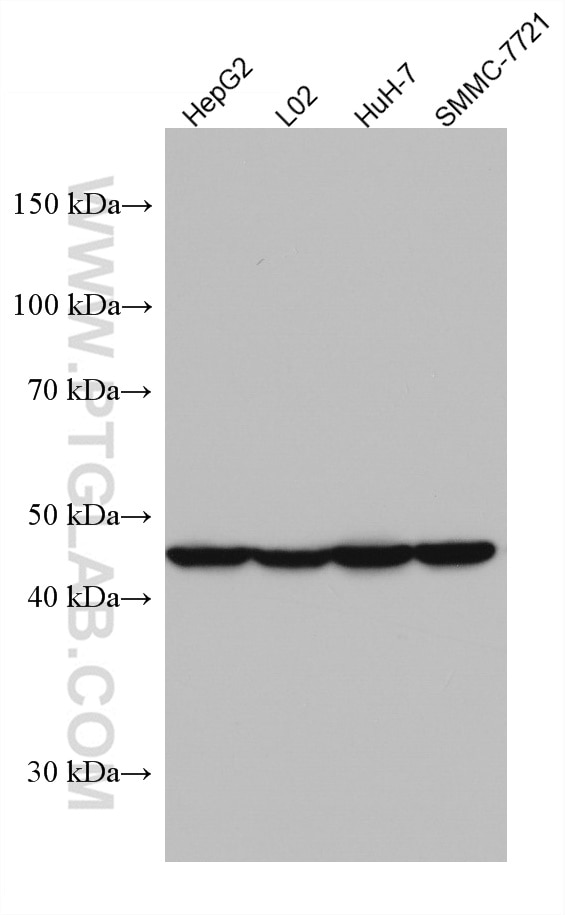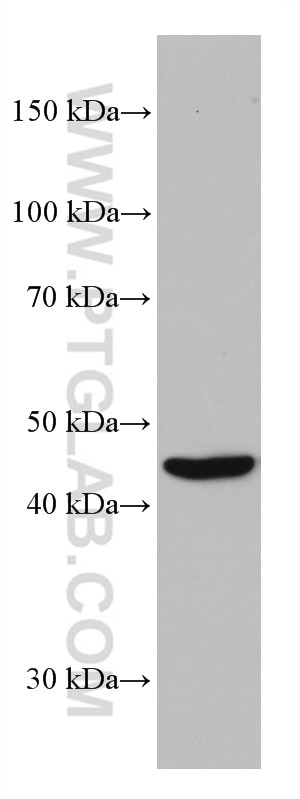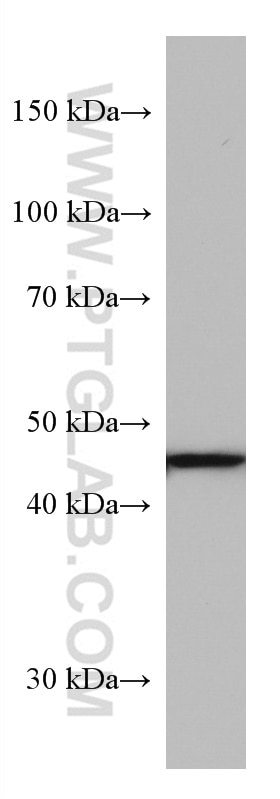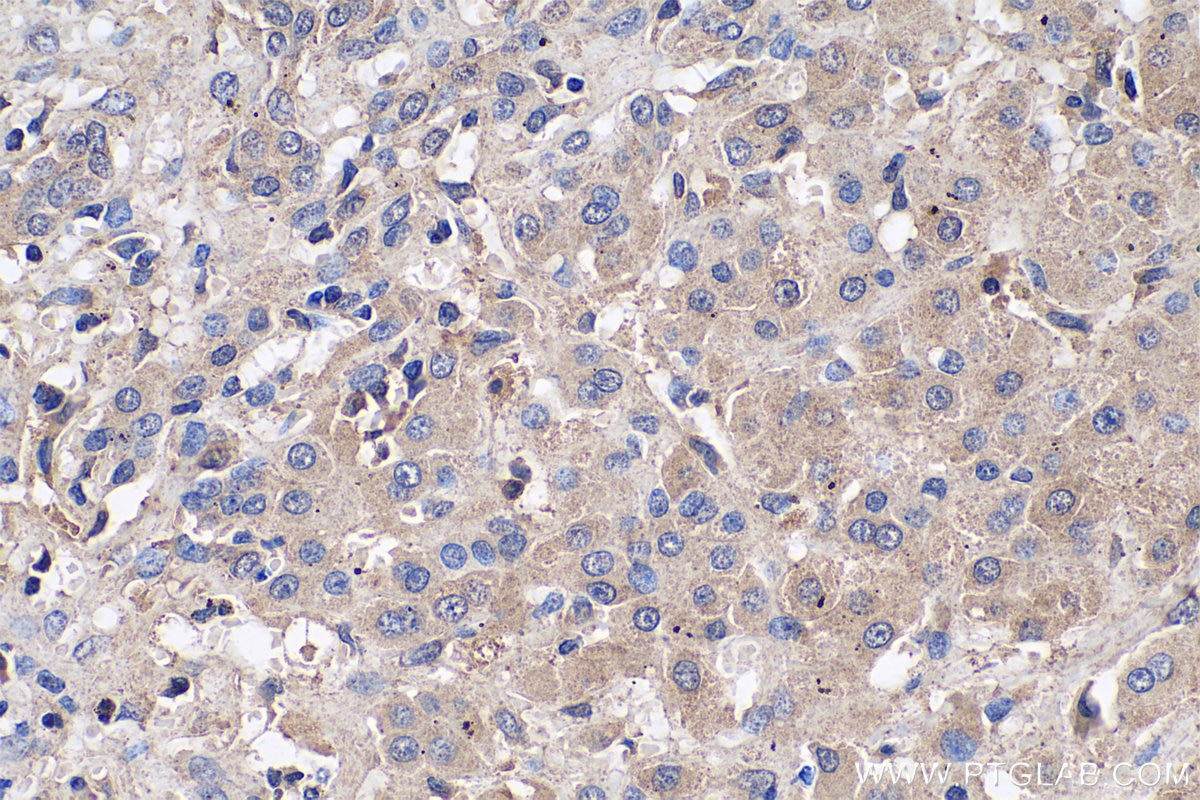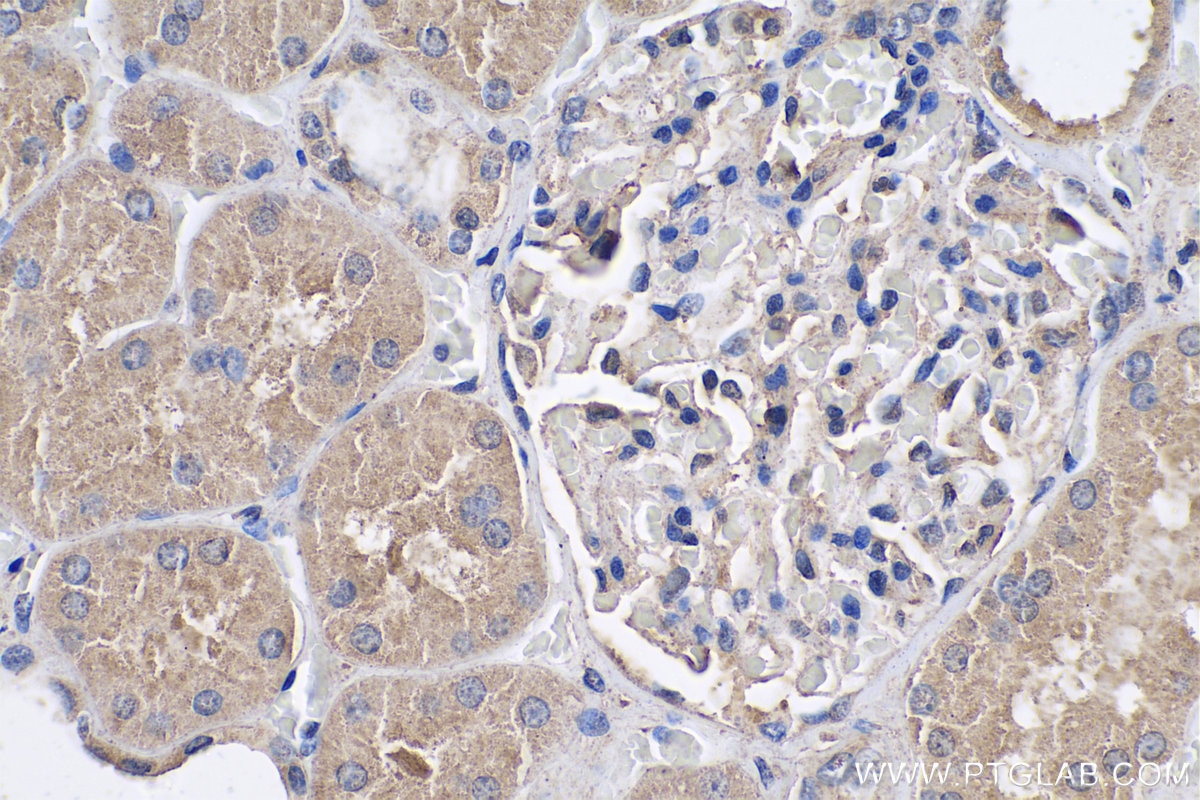Tested Applications
| Positive WB detected in | HepG2 cells, NCI-H1299 cells, A549 cells, L02 cells, HuH-7 cells, SMMC-7721 cells |
| Positive IHC detected in | human liver cancer tissue, human kidney tissue Note: suggested antigen retrieval with TE buffer pH 9.0; (*) Alternatively, antigen retrieval may be performed with citrate buffer pH 6.0 |
Recommended dilution
| Application | Dilution |
|---|---|
| Western Blot (WB) | WB : 1:2000-1:10000 |
| Immunohistochemistry (IHC) | IHC : 1:1000-1:4000 |
| It is recommended that this reagent should be titrated in each testing system to obtain optimal results. | |
| Sample-dependent, Check data in validation data gallery. | |
Product Information
67402-1-Ig targets AGXT in WB, IHC, ELISA applications and shows reactivity with human samples.
| Tested Reactivity | human |
| Host / Isotype | Mouse / IgG1 |
| Class | Monoclonal |
| Type | Antibody |
| Immunogen |
CatNo: Ag19188 Product name: Recombinant human AGXT protein Source: e coli.-derived, PET28a Tag: 6*His Domain: 1-392 aa of BC132819 Sequence: MASHKLLVTPPKALLKPLSIPNQLLLGPGPSNLPPRIMAAGGLQMIGSMSKDMYQIMDEIKEGIQYVFQTRNPLTLVISGSGHCALEAALVNVLEPGDSFLVGANGIWGQRAVDIGERIGARVHPMTKDPGGHYTLQEVEEGLAQHKPVLLFLTHGESSTGVLQPLDGFGELCHRYKCLLLVDSVASLGGTPLYMDRQGIDILYSGSQKALNAPPGTSLISFSDKAKKKMYSRKTKPFSFYLDIKWLANFWGCDDQPRMYHHTIPVISLYSLRESLALIAEQGLENSWRQHREAAAYLHGRLQALGLQLFVKDPALRLPTVTTVAVPAGYDWRDIVSYVIDHFDIEIMGGLGPSTGKVLRIGLLGCNATRENVDRVTEALRAALQHCPKKKL Predict reactive species |
| Full Name | alanine-glyoxylate aminotransferase |
| Calculated Molecular Weight | 392 aa, 43 kDa |
| Observed Molecular Weight | 43 kDa |
| GenBank Accession Number | BC132819 |
| Gene Symbol | AGXT |
| Gene ID (NCBI) | 189 |
| RRID | AB_2882644 |
| Conjugate | Unconjugated |
| Form | Liquid |
| Purification Method | Protein G purification |
| UNIPROT ID | P21549 |
| Storage Buffer | PBS with 0.02% sodium azide and 50% glycerol, pH 7.3. |
| Storage Conditions | Store at -20°C. Stable for one year after shipment. Aliquoting is unnecessary for -20oC storage. 20ul sizes contain 0.1% BSA. |
Background Information
AGXT (AGT) is a key enzyme in glyoxylate detoxification. Mutations of AGXT lead to primary hyperoxaluria type I, a rare metabolic disease which is characterized by deficient AGXT, excessive hepatic oxalate production that leads to renal failure.
Protocols
| Product Specific Protocols | |
|---|---|
| IHC protocol for AGXT antibody 67402-1-Ig | Download protocol |
| WB protocol for AGXT antibody 67402-1-Ig | Download protocol |
| Standard Protocols | |
|---|---|
| Click here to view our Standard Protocols |

